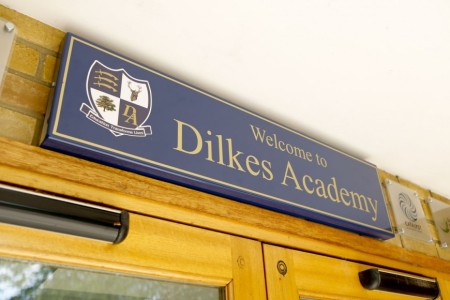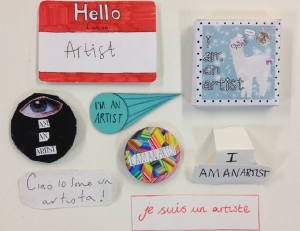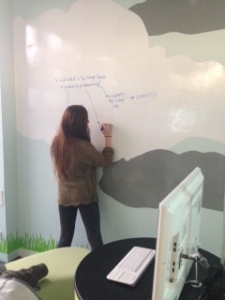
This month’s featured school is one of a growing number of international schools who are members of The Expansive Education Network
Al Yasmina has a growing reputation within a city saturated with educational establishments. Most recent inspections have ranked the school as a leader not only within the city of Abu Dhabi but rivalling more established schools across the Middle East. Such praise is well merited and serves as an excellent building block for future success.
Al Yasmina has only be open for 5 years but already boasts over 1700 students and exam results comparable with the top British schools. We have done a lot in a very short time. Initially the focus was on establishing good results, routines and reputations. In the last year the shift has moved to improving the standards of teaching and learning across the school. Associated with this was the formation of groups within the teaching cohort to look at various pedagogical tools and models and begin to distill the most valuable parts to be used within the delivery of the curriculum. Higher order questioning, the 5 Minute Lesson plan and Solo Taxonomy are now standard elements of all lessons and the adaptation of these to suit different subjects and groups of learners has led to an innovative approach to teaching and learning.
Coupled with this has been the introduction of Action Research for the first time. The aim was to look at the value this could add as a CPD opportunity. The outcome was a realization that Action Research could be more valuable and form a fundamental part of the schools ethos moving forward. Already several projects have been suggested looking at implementing projects at Middle and indeed Senior Leadership level.
Deputy Principal, Nicola Alley describes action research and its emergence at Al Yasmina as follows;
“It can be argued that the action research cycle of planning, action, evaluation and reflection is a process that teachers at Al Yasmina have intuitively always adopted. As one teacher commented “it is something we already do”. Staff are constantly trying out new ideas in the classroom, this involves a process that incorporates the key components of the action research cycle however the evaluation and reflection stages were never formalised. This meant that information was acquired by observing and talking to students and this informal knowledge informed the personal opinions and theories of teaching and learning. The emergence of Action Research has been the next step in developing an outstanding learning environment for our unique context, students and staff.”
Ultimately, with a shift towards providing a more holistic learning experience it has raised the question of how we report and indeed communicate progress with learners. The difference and more importantly the development from one sub level of progress to another is something the seasoned professional will routinely guide learners through. A certain amount of satisfaction is taken from being able to speak with parents at the end of the term and discuss how hard their son or daughter has worked hard to make the desired level of progress. We are slowly realizing however that we are selling ourselves short. We do much more than deliver progress. We develop learners. Very good learners as it happens but we do not report on how the students learn. This is one of the challenges we face moving forward and possibly the most important use of Action Research and indeed Building Learning Power.
Damien Ward
Year 9 Leader / Teacher of Physics


 r. Jonathan Barnes from Canterbury University currently seconded to the Sidney de Haan Research Centre for Arts and Well-being’
r. Jonathan Barnes from Canterbury University currently seconded to the Sidney de Haan Research Centre for Arts and Well-being’



